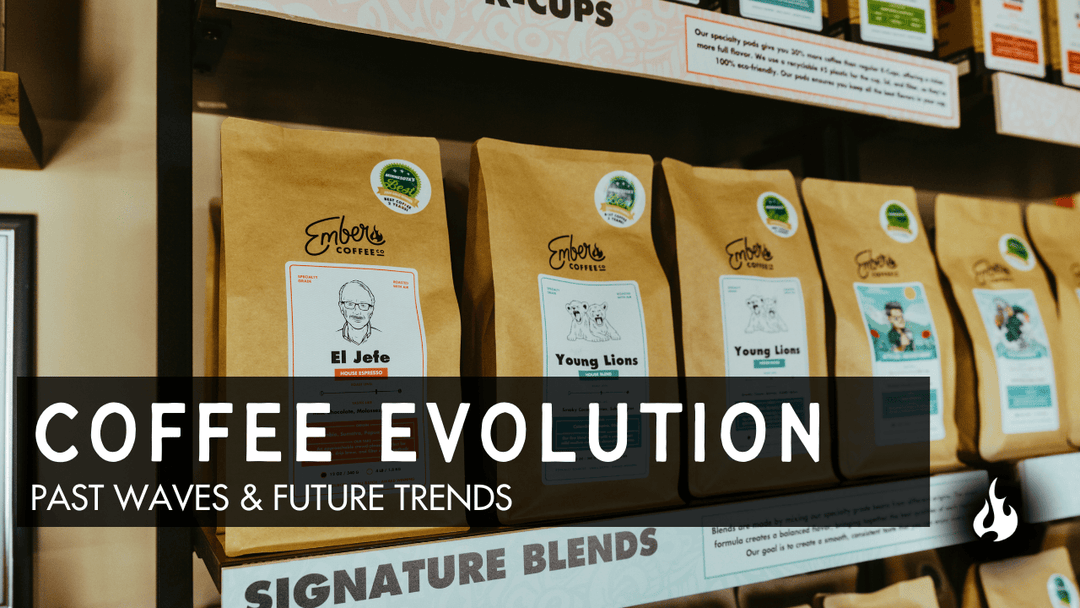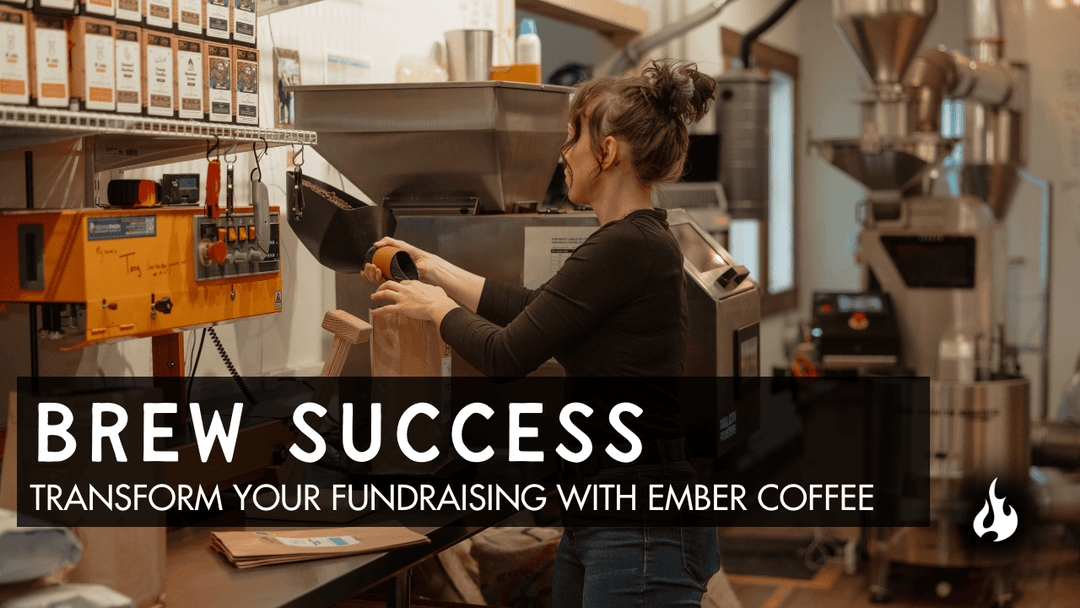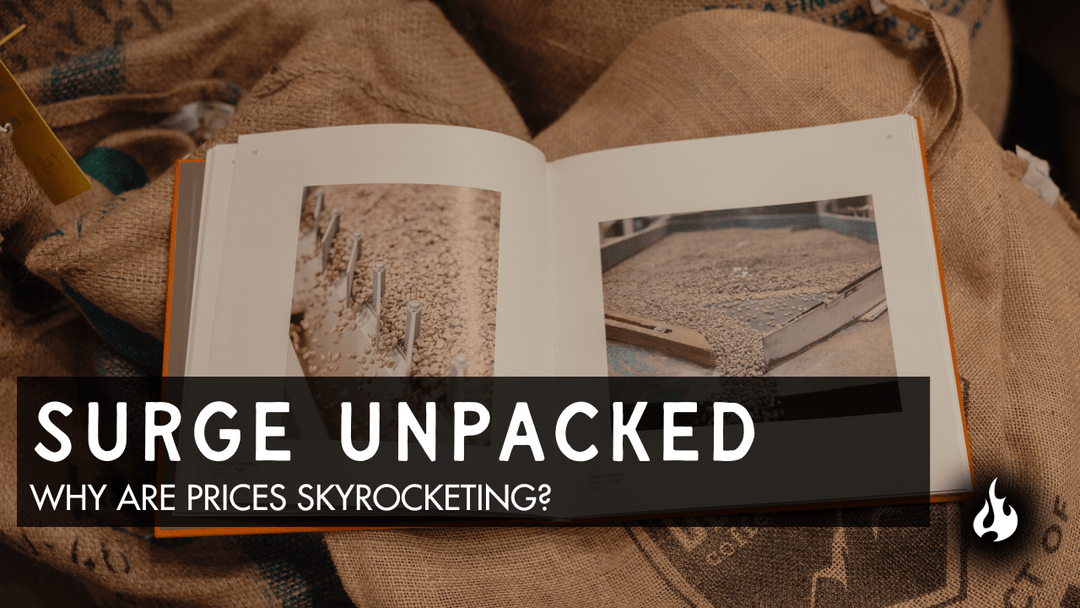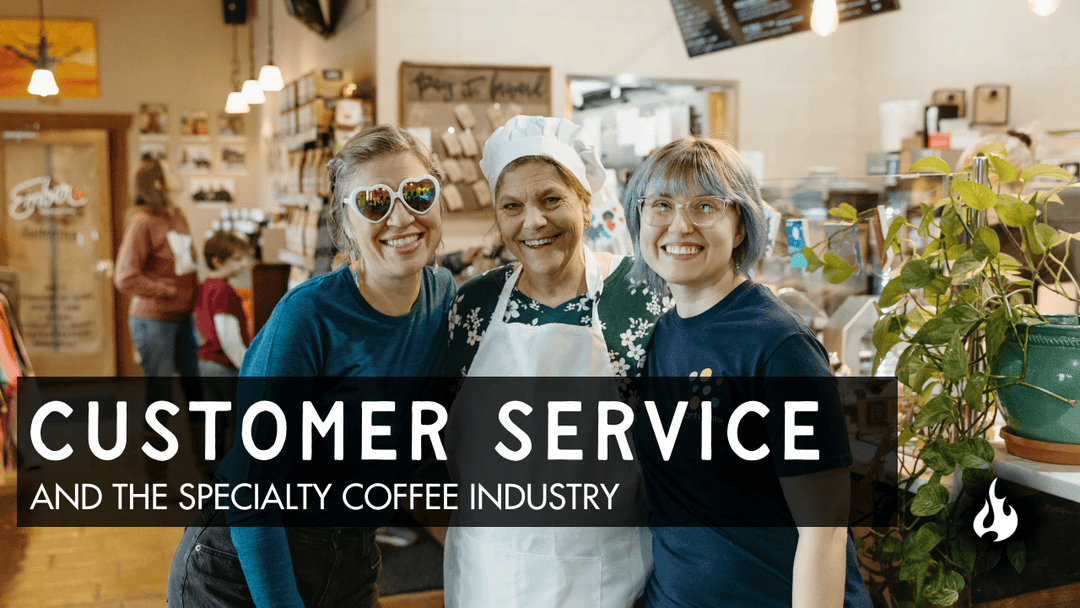Refining Your Operations
Refining Your Operations
Refining Your Coffee Shop's Operations: From Menu Boards to Equipment

Refining Your Coffee Shop's Operations: From Menu Boards to Equipment
Running a coffee shop is like a journey filled with decision-making. Each choice sends ripples that affect how smoothly the shop operates, how happy the customers are, and how much profit the shop makes. What I'm sharing here are not secret tips to running a coffee shop. They're basic lessons learned from real-world examples. If nothing else, these stories from the coffee shop world show the important part decision-making plays in a coffee shop's success.
1. Simplify and Strategize Your Menu
How you show your menu is important because it shows what you have to offer. If your menu is boring, customers will probably think your food is too. When a menu has things that surprise or delight customers, it expresses your personality. Then, customers who enjoy it will talk about it.
- Make sure your business decisions are fair and simple. Make your brand easy to understand. Don't overwhelm your customers with tons of text or too many choices. Show them what makes your specialty drinks special in a clear way. Make your pricing straightforward and simple. For example, show only the prices for medium-sized drinks.
- Use Tech Solutions: Digital menu boards are totally awesome. They let you change your menu and prices super fast. So, make one change now to show the board's benefits. Use these boards in places where you need big changes or constant updates to be digital and must-see.
- You can be creative in how you make your menu. You don't have to lose clarity or make the customer experience less smooth just because you want to make your menu a work of art. It can be a good use of your time and a really effective way to market your restaurant.
2. Focus on Core Offerings
Every café is unique. Focus on what makes yours special and use that to build a clear image for your business.
- Figure Out Your Key Products: Choose a few excellent products that really show what your brand is about.
- Figure out what your neighborhood likes. It might sound obvious, but you need to know what flavors your local market wants. For example, if people drink super sugary stuff, and you guys can make your coffee drinks sweet enough for local tastes, can you still make lattes? Not exactly like Starbucks, but similar.
By concentrating on your main strengths, you can save money and avoid confusing your brand with unclear messages. This way, you can stay focused on what you do best and show clients who you really are.
3. Maximize Efficiency with Equipment Choices
It's really important to invest in the right tools, but even more crucial is to prioritize what matters most.
Start with Basic Stuff: Don't spend too much money on equipment. Try out your new ideas on a smaller scale. For example, use small systems that add carbonation to drinks to see if your ideas work. That way, you won't waste a lot of money on big equipment if your ideas don't turn out as good as you hoped.
When you buy important things like espresso machines, think about how they'll help you in the future, for 5, 10, or even more years. You should pick only the best professional models. Anything else might not let you keep up with more demand as your business grows.
Choosing the right equipment to keep costs low at first and make future changes easy is a smart and practical way to set up a business.
4. Sweeten Smarter
How much syrup is too much syrup? We all have our own tastes, and the amount of syrup we like on our pancakes or waffles can really vary. Some people even put bases like peanut butter or almond butter under the syrup when they pour it on. It's a good idea to rethink how syrup is poured, but there's also another reason to think about syrup. Syrup is really sweet, and lots of people who pour it on don't think about how that affects their health and the flavor balance in breakfast.
As a coffee business, you have to set and maintain your own sweetness standards. Follow these steps and don't skip ahead. When you get to this part, you might think, "Why do I need to go through all this?" Remember, there's a reason why not just anyone can make Death Wish Coffee. You can't take short cuts. You can't make coffee like this in someone else's kitchen or using their recipes. Whether you like it or not, you have to make something that meets or comes really close to our "Sweetness Standard."
Suggest Sweetness Additions: If customers say their drink needs more sweetness, you should try to get them to order something that adds sweetness to their drink. Ask them if they want to add a Sweet Cold Foam, which is the best way to sweeten a drink. It's not just because the Sweet Cold Foam is the best way to sweeten a drink. Actually, from my personal experience, there's no better way to make a drink sweeter than by adding Sweet Cold Foam to it.
Even small changes can increase your earnings a lot, and they won't hurt the high quality of your products or services that customers value.
5. Build Strong Vendor Relationships
It doesn't matter if you're filtering water or making syrups. Your suppliers are crucial to your business.
- When choosing suppliers, you can't just look at price. You also have to think about two really important things: how reliable they are and how good their support is.
- Stay flexible: Try new things like mushroom coffee or plant-based cream. But check if they will sell well, so you don't spend too much money too soon.
Having dependable suppliers makes sure that everything runs smoothly. This means you can safely try out new ideas.
6. Embrace Inventory and Cost Controls
To make things last, we have to closely watch how much stuff we have and how much it costs.
- Use tools like Dripos that show your COGS (Cost of Goods Sold). These tools help you understand your business better and control both your costs and sales. If you get regular reports and daily updates, you'll have a clear view of how business is going. Do your sales match the costs you expected when you bought your inventory?
- Find out what works for you: For some stores, just counting inventory by hand every week is fine. But for other stores, counting by hand might take too much time and cause too many mistakes. They could be better off with an automated system.
In the end, setting things up the right way cuts down on waste and makes sure we're always ready to meet demand.
7. Start Small with New Offerings
It's easy to get excited about new systems or products, but starting with a small-scale solution is often a more economical way to begin an important project.
- Before spending a lot of money on a system to carbonate drinks, test market interest in a prototype. Use this trial to decide if you should continue building a more advanced prototype. If the early feedback is mainly positive, you can confidently invest in the more expensive system to develop your test product further.
- Stick to what's working: Always stay focused on our successful programs, and don't think about future projects until those programs are running smoothly.
Doing this makes everything safer and helps us move forward carefully and at a steady pace, mostly because we've found a better way to get and use information.
8. Leverage Loyalty and Online Ordering
Getting your customers to come back to you is really important for your business. Online ordering and loyalty programs are two good ways to do this. But they can be dangerous if you're not careful.
- Avoid Extra Charges: Don't Pass Costs on to Customers. There's one kind of fee that can really mess things up. It's when customers are charged extra just for using a credit card to pay. If you have to charge something like that, keep it small. If you can't keep it small, avoid it altogether. This might mean you need to adjust your prices so you can handle the credit card fees.
- Consider delivery services. Even though DoorDash and apps like it charge fees, they provide a way to make money that is, for some people, worth the trade-off.
If your customers can interact with your business online just as easily and comfortably as they do in person, you're much more likely to build their loyalty and make them come back.
Conclusion
Balancing the ups and downs of a coffee shop is not easy. It's a business with few items and many chances to mess up. For example, mistakes in choosing the menu or the right tools can cost a lot. Key skills include shopping wisely, managing stock, controlling costs, and fixing problems. But these aren't the only skills needed to run a good coffee business. Whether you serve coffee on a big scale or just brew some at home, making coffee is about good decision-making. If you make the right choices, coffee price won't keep you from making it.
Focus on what makes your store different. Try new things. Keep changing what you do. The next cup waiting for you might be really close. And your next win can happen any time.







